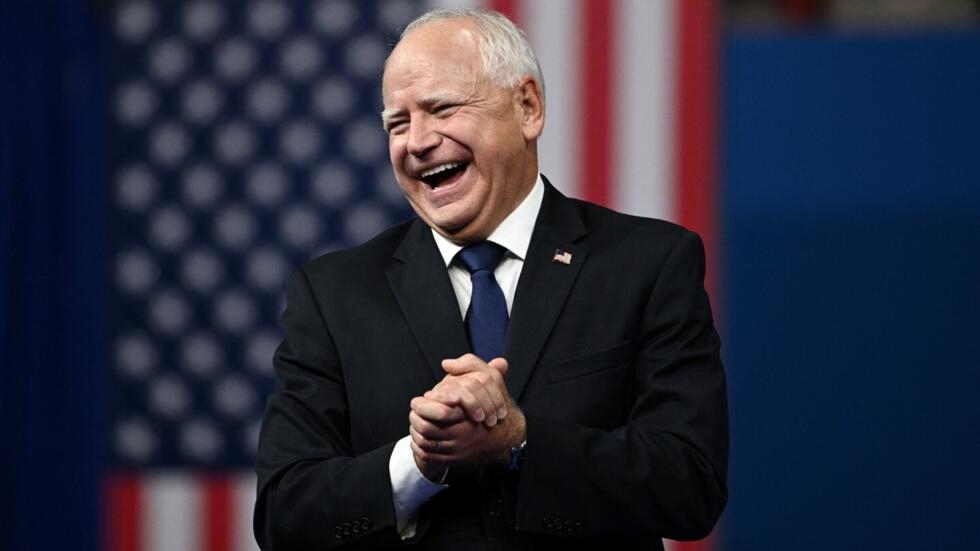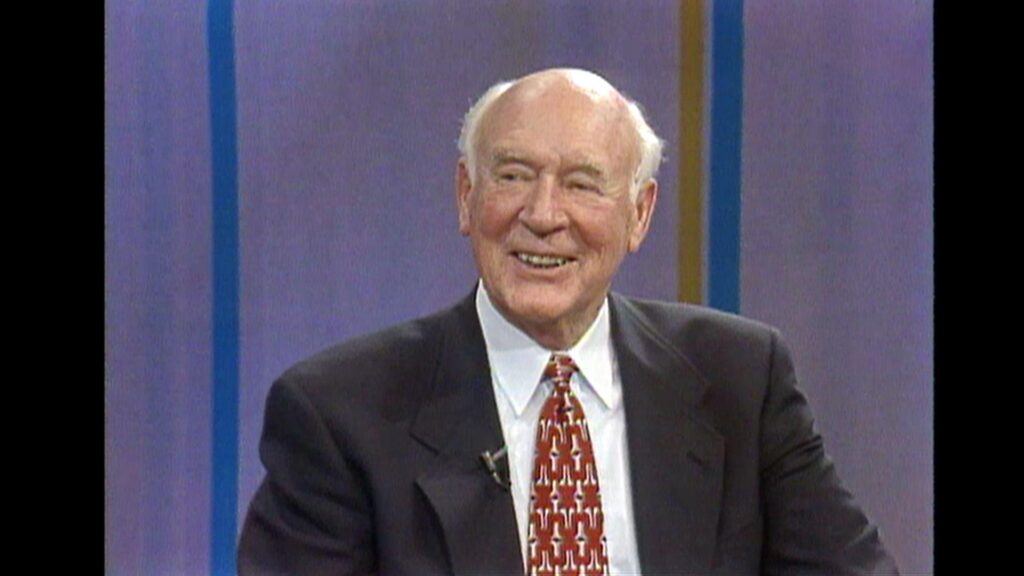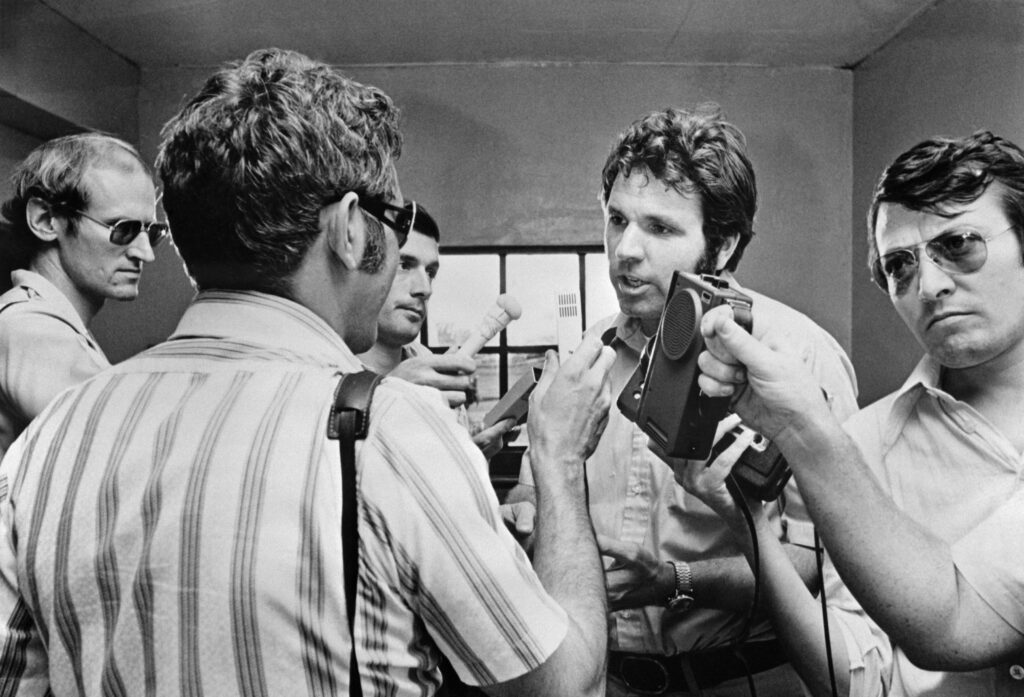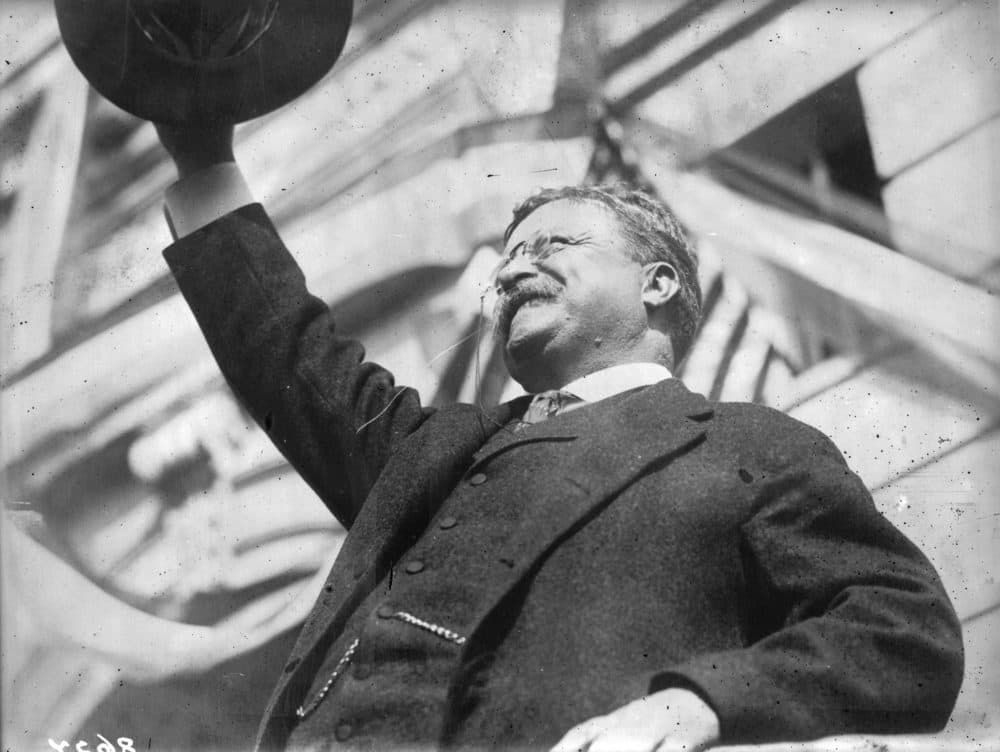Steve Symms was a politician ahead of his time. And that is no compliment.
Symms, an Idaho Republican who served in the House of Representatives and the Senate for 20 years, died August 8 at age 86. The former Canyon County fruit farmer was remembered by current Senator James Risch as a “staunch defender of conservative values in Washington, D.C., for the people of Idaho.” Idaho Governor Brad Little, who announced Symms’ death, called him “a true patriot … God bless this fighter for Idaho values.”
There is no question that Symms was a political figure of consequence, and not because of any list of legislative accomplishments — there are none — but because Symms was one of the earliest and most effective practitioners of the so-called “New Right’s” politics of grievance and resentment.
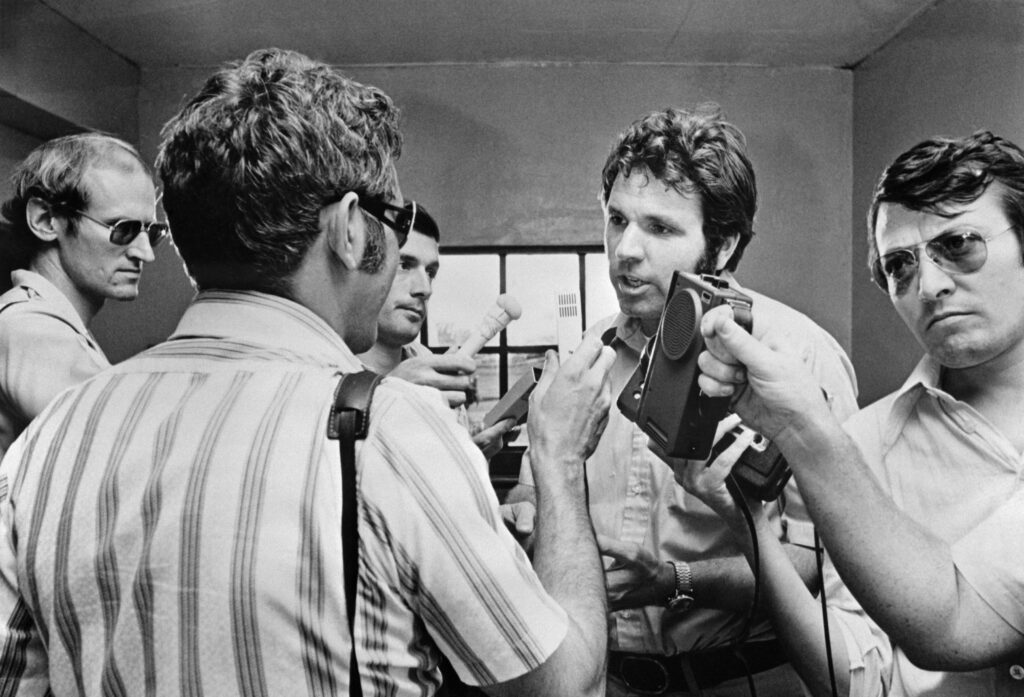
As effective a retail politician as almost anyone in the state’s history, a back-slapper who was quick with a quip, Symms knew how to work a room and charm voters, while often peddling genuine nonsense — or worse.
Beneath his sunny personality beat the heart of a cultural warrior ready at any moment to flay the liberal enemy. Symms’ defeat of four-term Democratic Senator Frank Church in 1980 marked a decisive turning point in Idaho’s political trajectory as well that of the national Republican Party. In many ways, we are living with the politics that Symms and others on the 1970s New Right ushered in.
Symms was a charter member of a group of young, far-right conservatives who came to Congress in the messy years when Richard Nixon was forced to resign the presidency. In the view of many of these sharp-elbowed conservatives, moderate Gerald Ford, who replaced Nixon, was little more than a RINO (Republican in name only).
When Ford nominated former New York Governor Nelson Rockefeller as vice president in 1974, Symms opposed the appointment. Rockefeller, Symms said, was evidence “of the rapid movement to the left by the Ford administration.” The choice of Rockefeller was “abrogation of liberty,” Symms said, “what we can expect from the mish-mash of unphilosophical ooze that the two-party system has degenerated into.”
You might think the incessant Republican attacks on the Environmental Protection Agency, the IRS or the media are a 21st century phenomenon, but Symms was regularly attacking the same “enemies” 50 years ago.
In 1980, for example, Symms supporters sported bumper stickers reading: “I’m voting for Steve Symms, the Statesman made me do it,” a reference to Idaho’s largest newspaper that had reported extensively – and fairly – on the support Symms received from New Right groups.
It was little noted in Idaho before 1980, but Symms was deeply involved with the founding fathers of the ideological, grievance-obsessed movement that engineered the GOP transformation in the mid-1970s.
“The late Paul Weyrich was the foremost political strategist of the movement,” columnist Stuart Rothenberg has written. “He was joined by people such as Ed Feulner of the Heritage Foundation, Howard Phillips of the Conservative Caucus, televangelist Jerry Falwell and direct-mail guru Richard Viguerie, all of whom … wanted to steer the country dramatically to the right.”
Symms, along with North Carolina’s Jesse Helms, Indiana’s Dan Quayle and the only member of this group still in the Senate, Iowa’s Chuck Grassley, were darlings of the New Right. Symms attended their trainings, utilized their talking points, sat on their advisory committees and, of course, vacuumed up their campaign money.
You hear echoes of these original New Right warriors in the current assaults on higher education, libraries, climate science and reproductive and voting rights. And that list doesn’t really get to the main feature of the modern GOP – total disdain for basic character and decency.
GOP vice presidential candidate JD Vance was born during Symms’s first Senate term, but the generational difference doesn’t mean they aren’t members of the same ideological family.
The political brilliance of people like Weyrich and Viguerie — and the racist Helms — resided in their understanding of how to appeal to “low information voters,” who are, not incidentally, the largest group of Donald Trump followers. These folks display only passing interest in politics and governing, but are mad as hell about immigrants, the “deep state” and “communists.” The New Right’s originalist strategy was to rile up these infrequent voters with dystopian visions of a country going down the toilet because of guys like Frank Church, who, after 24 years of distinguished service, was accused of being “too liberal for Idaho.”
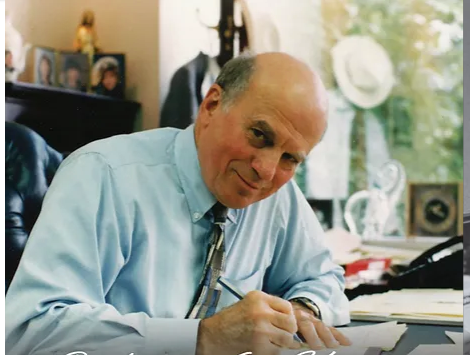
The National Conservative Political Action Committee — Roger Stone was a founder — saw in Symms a vehicle to remake the national party. NCPAC’s landmark — and grossly unfair — attacks on Democratic incumbents in 1980 seem almost quaint by today’s smashmouth political standards. Yet, the histrionic direct mail, distorted television and big lies worked. And they still work.
The issue mix in Symms’ 1980 race against Church included, of course, opposition to abortion, challenging whether “liberal” New York City deserved financial help from Washington, D.C., undermining the treaty that returned control of the Panama Canal to Panama and promoting the wholly invented Sagebrush Rebellion, an issue that worked particularly well in Idaho with Symms talking constantly about federal government overreach allegedly destroying the state’s economy.
There is, of course, some irony in Idaho’s governor praising Symms’ support of “conservative values,” not including apparently Symms peddling the entirely fabricated but widely disseminated story that Kitty Dukakis, the wife of the 1988 Democratic presidential candidate, Michael Dukakis, had once burned an American flag.
And missing from most Symms obituaries was any reference to why he left the Senate in 1993 after two terms at age 54.
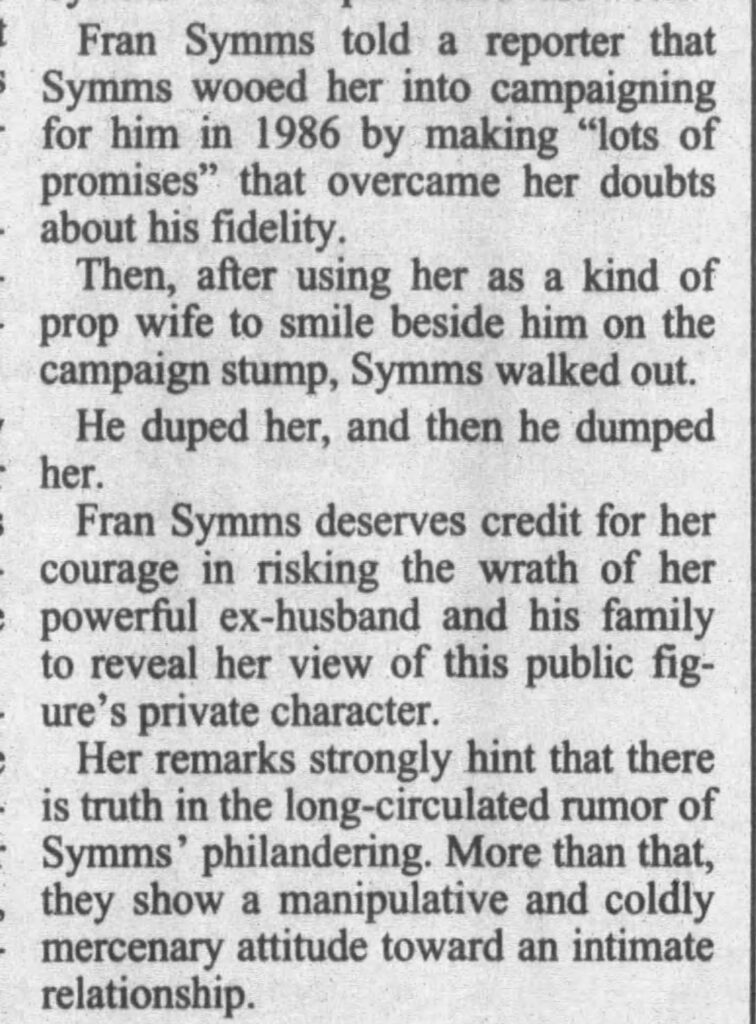
“He duped her, then he dumped her,” editorialized the Twin Falls Times-News after it broke the story in 1991 about Symms campaigning with his wife, Fran, to get reelected in 1986 and then, after being romantically linked to a staff member, filing for divorce.
That interview with the Times-News in June 1991 was the only one Fran Symms gave regarding the divorce and the rumors of her husband’s affair.
“Steve Symms is under fire, not for the divorce, but for being two-faced,” wrote Bill Hall of the Lewiston Tribune. “He has cynically used, not only his wife, but the people of Idaho to whom he has also been legally linked for two decades. They should copy their remedy from him: Divorce him.”
The senator announced his retirement two months later.
This much of Governor Little’s tribute was correct: The Symms who trafficked in smears, was concerned about Supreme Court Justice Sandra Day O’Connor’s appointment because of her views on abortion and said that when all else fails, American justice should come from “the cartridge box,” exemplified what surely have become Idaho’s political values.
Steve Symms was a man before his time.
—–0—–
By the way …
I wrote about Symms and the New Right’s influence on American politics in my book Tuesday Night Massacre: Four Senate Elections and the Radicalization of the Republican Party. The University of Oklahoma Press published the book in 2021.
Additional Reading:
A few other items I found of interest …
Lessons in Leadership from Howard Baker
Remembering a different kind of Republican.
“Although Baker is best remembered as one of the heroes in the Watergate drama, his most remarkable work came when Jimmy Carter decided to negotiate two treaties by which the Panama Canal would be returned to Panama. Five presidents before Carter, starting with Eisenhower, had recognized the damage that anger about American control of the Canal was doing to America’s relationship with Panama and Latin America but chose to do nothing about it. With tensions rising in Panama, Carter decided it was imperative to act. Many years later, Baker would remember his reaction to Carter’s call in August 1977 asking for his support. ‘I wished he hadn’t asked,’ Baker said. ‘It was an unwelcome challenge.’ He wondered then: ‘This has been kicking around for years. Why now, and why me?'”
A very nice piece from the Washington Monthly.
Trump’s visit to Montana demonstrates he’s all bluster and no policy
My friend Darrell Ehrlick writes about Donald Trump’s recent visit to Montana and concludes it’s a fool’s errand to try to fact check the former president. As Darrell writes:
“We shouldn’t inform people of when Trump misstates or gives the wrong information: That happens so often that when fact-checkers report them, they hardly have any time to register before the next fact-free statement is made.
“Instead, fact-checkers and journalists may want to consider only reporting what Trump said that is tethered to verifiable facts.”
Good idea. Here’s the full piece.
How to Start a Professional Sports Team, Win Games, and Save the Town
I’m a San Francisco Giants fan. But I have always liked the team across the bay in Oakland, and it is a sad, sad fact that the A’s are going – apparently and eventually – to Las Vegas.
This is awful news for a loyal fan base and for an entire city, but the actions of one rapacious owner, John Fisher, has stimulated something in Oakland. Great story about two guys, Paul Freedman and Bryan Carmel, and their perfectly crazy and wonderful idea.

“What Fisher sought to dispossess Oakland of, in Paul’s mind, was far more than just a business or even a beloved team, but a cornerstone of the East Bay’s self-conception, and its importance to Oakland felt well-evidenced by the reverse boycott. The boycott had been designed to prove that Oakland remained a vociferous sports town deserving of teams that loved it back. Paul left convinced and inspired. He texted Bryan, who was in L.A. (Bryan, a member of the WGA, was on strike.) “I have a crazy idea,” Paul wrote. “I like crazy ideas,” Bryan replied.
See you again soon. Many thanks for reading. All the best.

